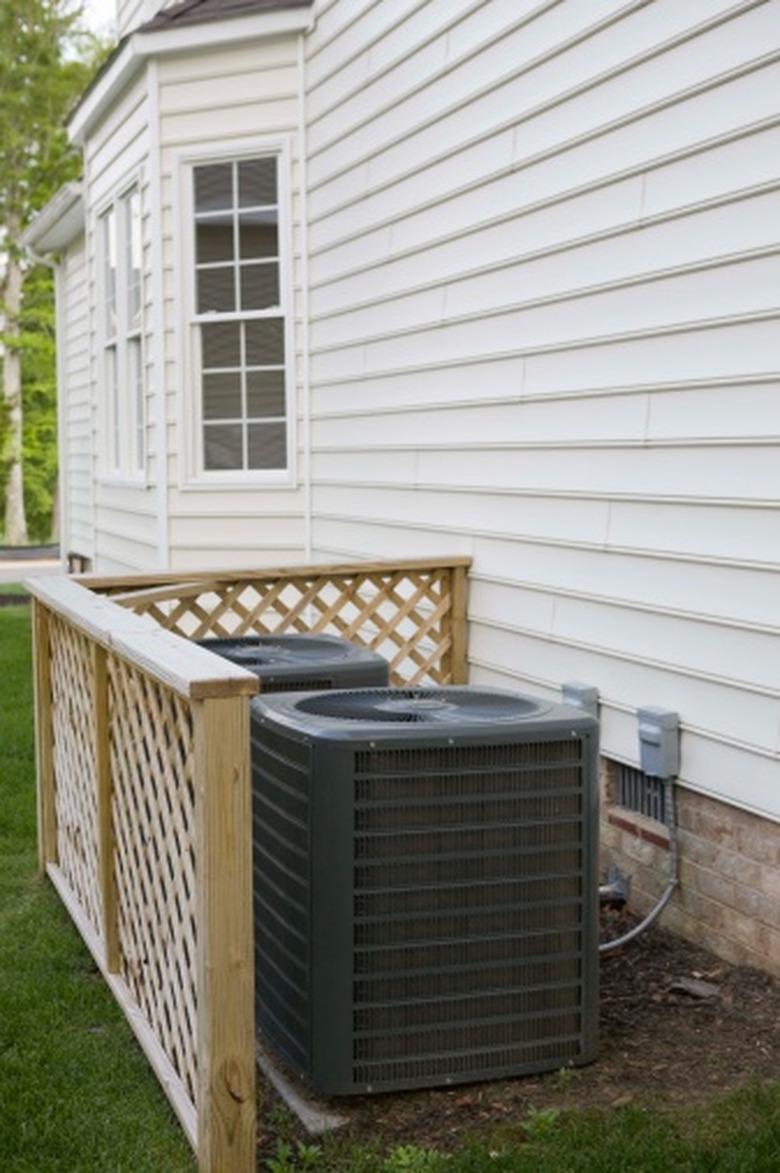Differences Between Air Conditioning & Refrigeration
In many ways air conditioning and refrigeration systems are very similar. Both use specially designed chemicals, the physical effects of the compression and expansion of gases, and the conversion of gas to liquid to reduce the temperature of air. The varying uses of these systems, however, mean refrigeration and air conditioning systems have a handful of key differences in the design and operation.
Supply
Supply
A major difference between refrigeration and air conditioning is the point of supply for the gases. Refrigeration systems have gas installed in a series of tubes. In old refrigerators, this gas was chloro-flouro-carbon, or CFC, but this has harmful effects on people, so refrigerators not contain HFC-134a. HFC-134a is the sole gas used as a coolant in refrigeration systems. Air conditioning systems use built-in chemicals, but also air from the room or rooms being heated. Gases built into air conditioning units cool air that circulates through the unit; the unit then redistributes the cooled air through the room.
Circulation
Circulation
Air conditioners have circulation systems designed to project cool air away from the units while refrigeration units have circulation systems designed to retain coolant in a confined space. Refrigeration systems circulate cool liquids and gases through a series of tubes and vents. Cool air from within a refrigerator is sucked into a compressor that recycles the gas through the tubes. Air conditioners, while also employing tubes in the coolant system, have fans for the dispersal of air. Unlike refrigeration systems, which keep gases contained to a pre-determined space, air conditioning systems disperse cool air throughout areas of unknown volume.
Vaporization
Vaporization
Both air conditioning and refrigeration units depend on converting liquid to gas in the cooling process, but the manner in which they achieve this is different for each system. Air conditioners use something called an evaporator to convert a liquid to a gas. An evaporator is a small, narrow hole designed to change the pressure of a liquid so that it evaporates. Refrigeration units, on the other hand, cycle HFC into a low-pressure chamber designed to boil the gas. This boiling causes HFC to vaporize. Vaporization is the process of converting a liquid to a gas and can be accomplished one of two ways: boiling or evaporation. Thus air conditioning units vaporize liquid through evaporation while refrigeration systems do so through boiling.
